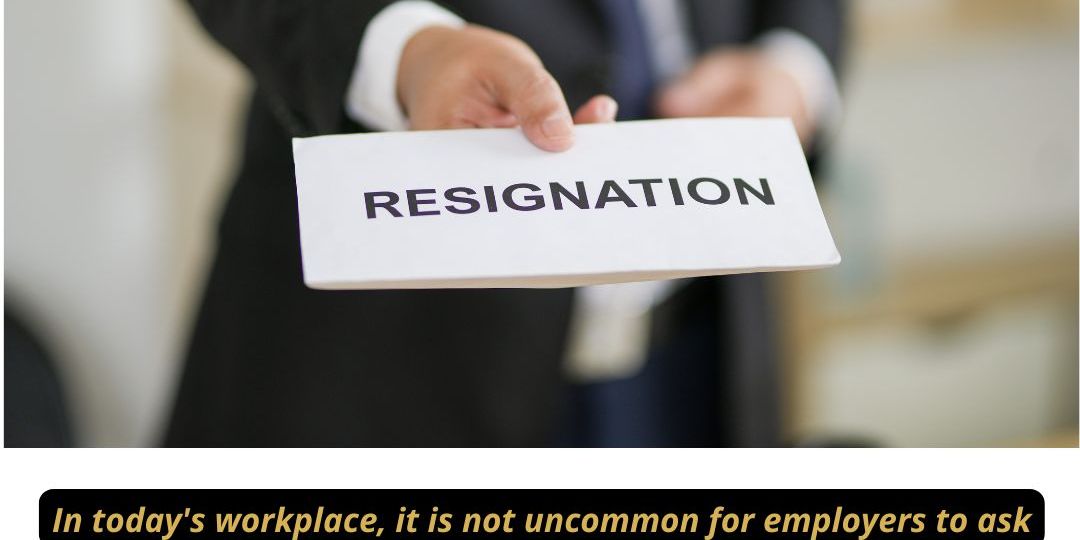
Navigating Forced Resignations In Alberta: A Legal Perspective on Employer Risk
In today’s workplace, it is not uncommon for employers to ask employees to resign, often presenting the request as an opportunity to avoid the stigma of being fired. This approach is usually taken under the assumption that resignation allows the employee to leave with their reputation relatively intact. However, such resignations may not always be voluntary, and if forced, they can lead to significant legal challenges for employers in Alberta.
An involuntary resignation—one where the employee feels compelled to leave—may not hold up as a valid resignation in the eyes of the court. The Ontario Court of Appeal has addressed this issue in Kieran v. Ingram Micro Inc. (2004). In this case, the court held that a resignation must be “clear and unequivocal,” meaning that it must objectively reflect the employee’s intention to resign or conduct demonstrating that intention.
If an employer imposes resignation on the employee, rather than it being a voluntary decision, the resignation can be viewed as a termination of employment, opening the door to potential liability for wrongful dismissal.
This principle was further affirmed in Pasap v. Saskatchewan Indian Gaming Authority, where the Saskatchewan Court of Queen’s Bench ruled that presenting an employee with the ultimatum of resigning or being fired constitutes a termination of employment. The court highlighted that an employee placed in this position might reasonably feel coerced into resigning, rendering the resignation involuntary and effectively a dismissal.
Forced Resignation as Termination in Alberta
When an employer in Alberta asks an employee to resign or face dismissal, they risk the resignation being deemed involuntary. If a court finds that the resignation was coerced or imposed, it may treat the resignation as a termination of employment. This could require the employer to pay severance, just as they would in the case of a termination without cause.
Furthermore, if the resignation is considered involuntary, and the employer fails to properly compensate the employee, the employer may also face additional damages. Courts in Canada have recognized that the manner of dismissal matters, and where an employer is found to have acted in bad faith or in a high-handed manner, the employee may be awarded moral damages for the emotional distress caused by the employer’s conduct.
For example, in Kieran, the employee was awarded $25,000 in moral damages due to the way his employment ended—specifically, the fact that he was asked to resign or be fired. The court found that the employer’s actions contributed to the employee’s emotional suffering, and this was reflected in the damages awarded.
The Risk of Moral Damages
Moral damages arise from the manner in which an employee is treated during the termination process. Courts have repeatedly stressed that employers must act in good faith when ending an employment relationship. If an employer is found to be disingenuous—such as claiming an employee voluntarily resigned when, in fact, the employee felt they had no real choice but to resign—the employer could be liable for additional damages beyond severance.
Moral damages are designed to compensate the employee for mental distress or humiliation caused by the employer’s actions. This area of law highlights the importance of treating employees fairly and with respect throughout the termination process, even in situations where the employment relationship must come to an end.
Avoiding Legal Employment Law Pitfalls in Alberta
This does not mean that employers cannot suggest resignation in certain situations. There may be scenarios where resignation is mutually beneficial for both parties. However, employers must tread carefully when suggesting resignation, ensuring that the employee truly feels they have the option to make the decision voluntarily. If the resignation is viewed as forced or coerced, it could be deemed invalid, resulting in the employer being held responsible for wrongful dismissal.
Employers should seek legal counsel before suggesting a resignation to an employee, especially in contentious circumstances. It is essential to consider how best to negotiate a settlement and ensure that any agreement reached is valid and enforceable.
When handling a resignation, employers in Alberta should ensure the following:
- Voluntary Decision: The employee’s decision to resign must be voluntary, without any indication that they were pressured into doing so.
- Clear Communication: Employers should communicate clearly with the employee, ensuring that they understand the implications of their decision and that resignation is only one option available to them.
- Proper Documentation: Any agreements reached should be properly documented, reflecting the reality of the situation. If a resignation is proposed by the employer, the documentation should show that the employee ultimately made the decision to resign on their own accord.
- Negotiated Settlements: Where possible, negotiate a settlement that provides both parties with closure, including severance where appropriate. This reduces the risk of future claims and can help maintain a positive relationship between the parties.
While asking an employee to resign may seem like a way to avoid the complexities of firing them, it can carry significant legal risks if the resignation is not voluntary. Employers must be careful to avoid any appearance of coercion or pressure, as courts are quick to strike down resignations that are not clear and unequivocal. In cases where resignation is forced, employers may face claims for wrongful dismissal, severance, and even moral damages.
To mitigate these risks, employers should ensure that they approach resignations with caution, seeking legal advice when necessary, and ensuring that any agreements with employees are fair, voluntary, and properly documented.
If you wish to learn more about your rights and responsibilities on this matter, our Calgary employment lawyers at Osuji & Smith would love to help and guide you.
Author: Imtiaz Hafiz

